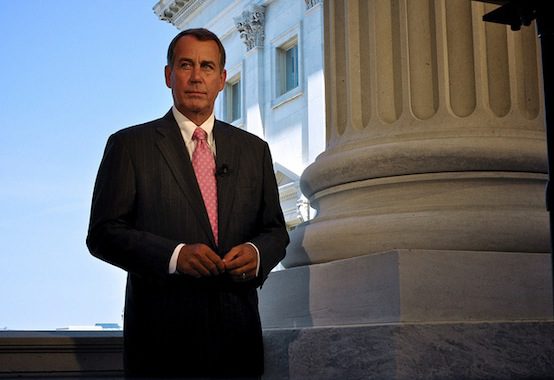What’s Wrong With the Republican Right?

No longer will it suffice for Republican politicians to come to Washington and compile respectable, or even stellar, ratings from conservative groups. If federal spending is ever to be restrained as the baby boomers enter retirement, we will need politicians who are willing to employ unconventional methods in the fight.
Conservatives need rebels and boat-rockers, not conformists and time-servers. So I argued in my recent book on the political prospects for limited government. Sen. Ted Cruz would seem to fit the bill. The Texas Republican has been a one-man demolition crew, aiming his wrecking ball squarely at Capitol Hill’s customs and conventions.
But, surveying the scene in Washington, is Cruz an example of the old saying about being careful about what you wish for?
The government is shut down, with more Americans blaming Republicans than Democrats. The Obamacare exchanges are up and running—not very well, but not defunded either. In fact, the shutdown may be taking attention away from problems with Obamacare’s rollout.
Cruz is a fighter. He has been willing to push the envelope, rebelling even against his own party leadership. He has forced congressional Republicans into a confrontation with the Obama administration that many of them wished to avoid, or at least delay until the debt-ceiling negotiations.
All that’s missing are tangible policy outcomes.
To be sure, in politics it sometimes pays to consider the long game. Barry Goldwater lost in a landslide in 1964, giving the Democrats the supermajorities they needed to usher in the Great Society. But in time, the GOP became Goldwater’s party to a far greater extent than Nelson Rockfeller’s.
Ronald Reagan lost the fight against the Panama Canal Treaty, just as he failed to win the Republican presidential nomination in 1968 or 1976. But Reagan’s subsequent victories are remembered long after most of those who had earlier beaten him were forgotten.
It would be premature to count Cruz out over a fiscal impasse that has yet to reach a decisive conclusion. But it might be worth asking a few hard questions.
Is the current confrontation likely to reverse or materially change the Affordable Care Act? Is it moving public opinion against Obamacare or against the Republicans? What is it accomplishing?
Perhaps if the answer is simply that it is raising Ted Cruz’s profile, it will still benefit conservatives over the long term. Since Goldwater and Reagan retired, the right has long lacked figures who can compete on more or less even terms with the Doles, Bushes, McCains, and Romneys of the world.
But it should not simply be assumed that this answer is good enough. Conservatives once fought Republicans whose “dime store New Deals” were only incrementally different from what the Democrats proposed.
Over time, they began to rely on things like American Conservative Union scores to assess lawmakers’ fidelity to principle. Groups like the Club for Growth emerged, challenging the business interests that had traditionally run the Republican Party for influence in the primaries.
Today it is no longer enough for most conservatives to have a Republican who will vote with them most of the time. Conservatives insist on politicians who will fight when it counts most. And they realize that some fights—Obamacare, the Wall Street bailout, the Gang of Eight immigration deal—matter more than tax breaks for hedge fund managers.
There is one more step in this evolution: evaluating whether conservatives are actually producing results. Too often, conservatives measure that by the volume of liberal outrage a Republican political figure inspires.
But while Reagan and Michele Bachmann were equally panned on the New York Times editorial page, which of them has more to show for all the liberal vitriol they endured? It does not even come close.
If conservatives won’t start taking results more seriously, you can bet the rest of the Republican Party soon will. In the 2016 primaries, Chris Christie will say that while his opponents were conducting marathon speaking sessions, he was beating liberals at both the ballot box and the statehouse in a Democratic region.
Even sooner, establishment Republican voices on Capitol Hill will start demanding to know what Cruz has bought the party as they prepare to cut a deal with Democrats.
In order to achieve victory, the late conservative activist Howard Phillips used to say, “first we must seek it.” Even before that, we must define it—and perhaps more ambitiously than we have done in the past.
W. James Antle III is editor of the Daily Caller News Foundation and author of Devouring Freedom: Can Big Government Ever Be Stopped?
Comments